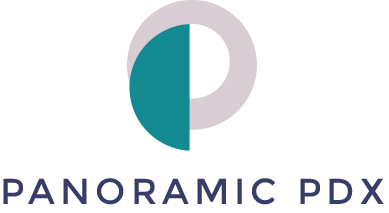
Trauma-Informed Career Counseling & Support for Work Stress
Your Nervous System Knows What Work Has Cost You
When Work Becomes a Story of Survival
Therapy helps you reconnect with the parts of yourself work asked you to push aside.
Not all work wounds are visible. You might carry the exhaustion in your jaw, your gut, your sleep—or in the story you’ve had to tell yourself just to keep going. Maybe you've survived impossible expectations, moral compromise, or a slow erosion of self under the weight of being “the responsible one.” In this space, we hold the emotional and physical toll of work stress, burnout, and moral injury with care. Your nervous system already knows what it's been asked to carry—together, we’ll start to listen.
Some people come in burned out. Others feel numb, anxious, resentful, or like they’ve disappeared inside the role. Therapy isn’t about fixing your work ethic—it’s about untangling the patterns that have kept you over-functioning, under-boundaried, or emotionally unseen.
We explore how systems—capitalism, heirarchy, ableism, productivity culture, gender systems—can live inside your nervous system, not just your schedule. And we practice what it means to feel safe enough to rest, speak up, say no, or imagine something different.
This is trauma-informed career counseling. This is not about climbing corporate ladders. This is not about branding. This is about finding your way back to what feels like you.
What I’ve Learned From Listening
I’ve spent over 20 years supporting people through the emotional and physical toll of navigating workplace stressors. From vocational rehababilitation and disability systems to burnout, moral injury, stress illness, and workplace trauma—I’ve seen what work can do to a nervous system..
I’ve seen the way jobs can shape identity, erode boundaries, and echo trauma. I’ve seen what it takes to unlearn that kind of survival—and I’ve seen what it looks like to come home to yourself again.
I’ve learned that “career counseling” isn’t just about résumés or roles. It’s about safety, worth, dignity, and survival.
Healing begins when we stop asking, “How can I keep pushing?” and start asking, “What do I need to come back to myself?”
The system asked too much. Therapy asks what you need.
Begin the Inquiry Process.
Listen to me talk about getting unstuck in your career on the Find Your Dream Job podcast.
While my work has evolved some since this recording, the heart of what I share here—permission, self-trust, and a deeper look at what holds us back—still rings true.

We Often Talk About:
Aging in the Workplace • Anger • Anxiety • Boundaries • Bullying • Burnout & Compassion Fatigue • Capitalism Fatigue • Career Transitions • Caregiver Stress • Chronic Pain & Illness • Coming Out in the Workplace • Creative Blocks • Cultural Identity • Disabilites • Fatigue • Feeling Trapped & Powerless • Gender Expression at Work • Harassment & Discrimination • Hostile Work Environments • Imposter Syndrome • Internalized Ableism • Job Loss & Job Insecurity • Microaggressions • Moral Injury • Nervous System Regulation • Overfunctioning • People-Pleasing • Perfectionism & Procrastination • Queer Identity • Rest • Self-Worth • Somatic Symptoms • Systemic Oppression • Trauma • Unlearning Urgency • Values • White Supremacy Culture • Whistleblowing • Witnessing Misconduct • Work Stress • Workplace Trauma • Workplace Violence & Critical Incidents
My Philosophy of Care
In this space, we talk about the nervous system, identity, harm, healing—and the real experiences that shape how you show up at work and beyond. This is trauma-informed career counseling rooted in dignity, rest, and reclamation.
And okay, yes—the campfire is symbolic in this instance.
So if you’re here with Office Space references and a secret fantasy of lighting your job on fire?
You’re not alone. Let’s talk.

